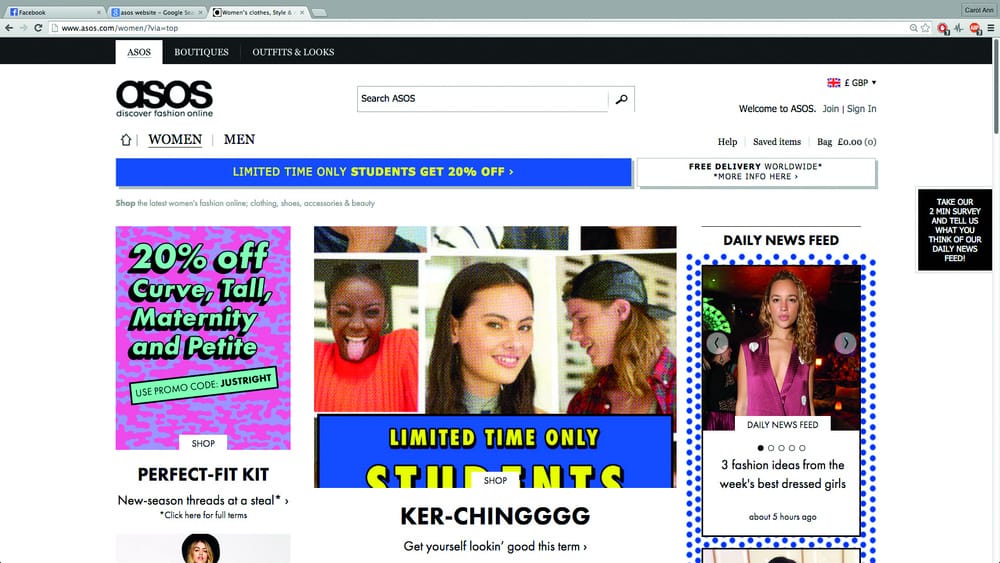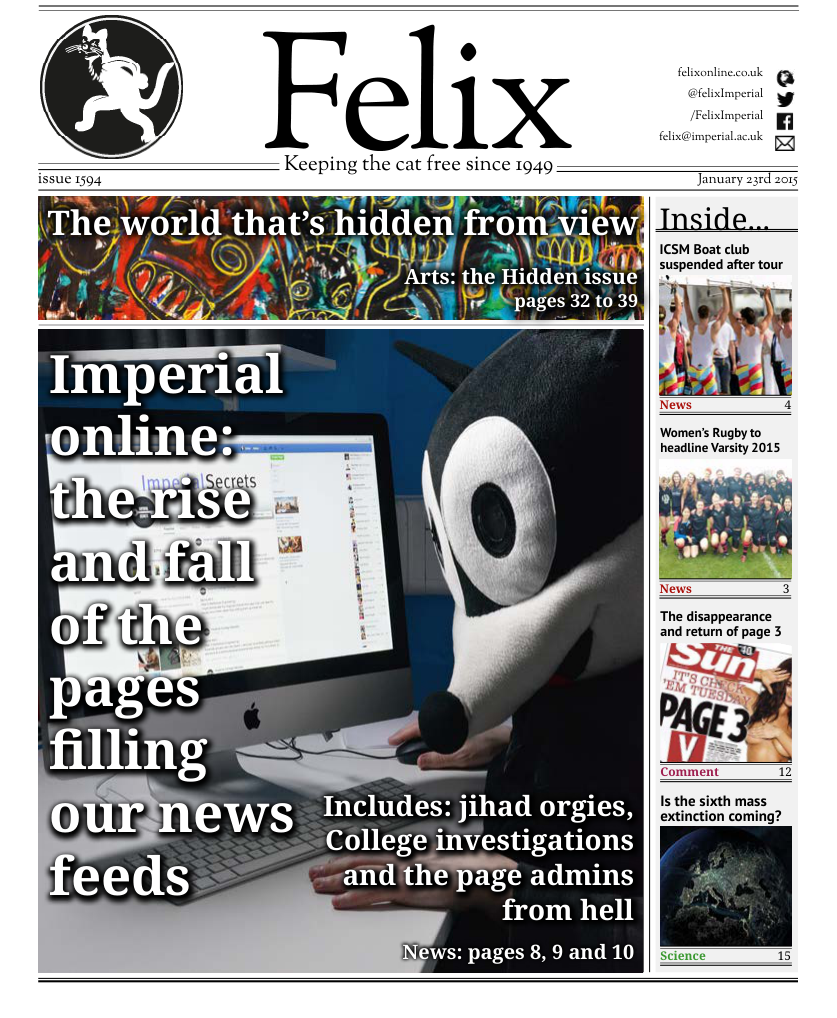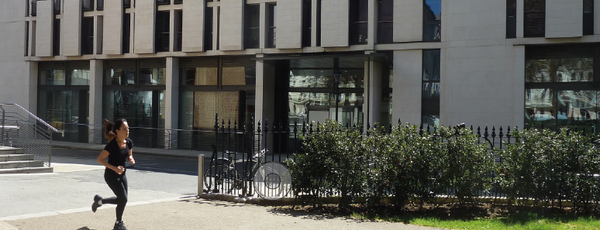ASOS CEO Nick Robertson talks about his sucesses to crowd of hundreds
Cecile Borkhataria goes to the event hosted by IC Entrepreneurs

On Monday, an event hosted by the Imperial Entrepreneurs society (IE) saw Huxley flooded with students hoping to see ASOS co-founder and CEO, Nick Robertson, give his insight into the success of his company. As the queue of hopeful students extended onto the Sherfield walkway, members of IE handed out flyers “guaranteeing” entry to the event.
Once first year Maths students finally left Clore lecture theatre, the room was inundated with students from all courses and years.
The ambience was decidedly electric and students were very excited. Some tried to save seats for their friends, only to be told by members of IE that, due to high demand, no seats could be saved for anyone – places were to be allocated on a first-come-first-served basis only.
Once the crowd was finally seated, Nick began his inspirational talk. He came across as laid back and confident, and was clearly used to speaking in front of large crowds of people.
The 30-minute speech saw Nick take the audience on the journey towards the highly successful company that ASOS is today.
The fashion retailer, established in 2000, was originally called As Seen on Screen, which featured links to websites where people could buy the furniture and clothes featured in their favourite movies and sitcoms. At the time, Nick bought the domain name for just £50. The website gained revenue from featuring relevant brands on the website. Eventually, Nick and his business partner (his brother) decided to source the actual products and sell them for a mark up.
ASOS saw a big change in its business model after it hired a new buyer, who used to work for Topshop. The new buyer sourced the most demanded items from wholesale stores around London to be sold online.
With growing success and noticing that the fashion side of the business was performing better, the firm saw a transition from retailing clothing and homewares to just accessories and clothes.
The brand encountered a setback in 2005 when a nearby fuel depot exploded near the ASOS warehouse, causing the online business to close for six weeks, with a loss of stock worth £5 million.
ASOS’s target customers are young people in their twenties, particularly women, who are fashion conscious. Since its founding, the business has slowly accumulated an impressive portfolio of huge brands.
During the Q&A session after his talk, Nick Roberston said “five years ago, if you’d have told me that River Island would be sold at ASOS, I wouldn’t have believed you.”
Indeed, the fashion retail website started out supplying smaller, independent brands (such as Lipsy when it was first introduced), and as traffic grew, the business gained traction and larger global brands began to join the businesses repertoire.
The ASOS ‘free returns’ policy has been a significant aspect of the brand’s success, and Nick said the decision to implement it in 2006 was simple, as he thought he should “give the customers what they want”. Nick emphasised that this was a marketing spend that improved customer loyalty, and is important as 35% of all orders are returned.
The next priorities for ASOS are to optimise its app, as 30% of its sales are made through a mobile device.
Along with mobile device optimisation, Nick hopes to transition from spending huge sums for Google search engine optimisation, to building the ASOS brand and media even more.
When I asked Nick if he would consider opening ASOS stores in the future, he said that he’s been tempted to secure attractive retail spaces, but would prefer to stay online, as most young people spend a large proportion of their fashion budgets on the internet.
Nick proves that you don’t have to be a whiz kid to found a hugely successful business: he got a D and an E at A-Level, yet ASOS has an estimated worth of £159 million.
As the UK’s largest independent online and fashion retailer, ASOS has revolutionised the fashion industry and continues to grow rapidly.









